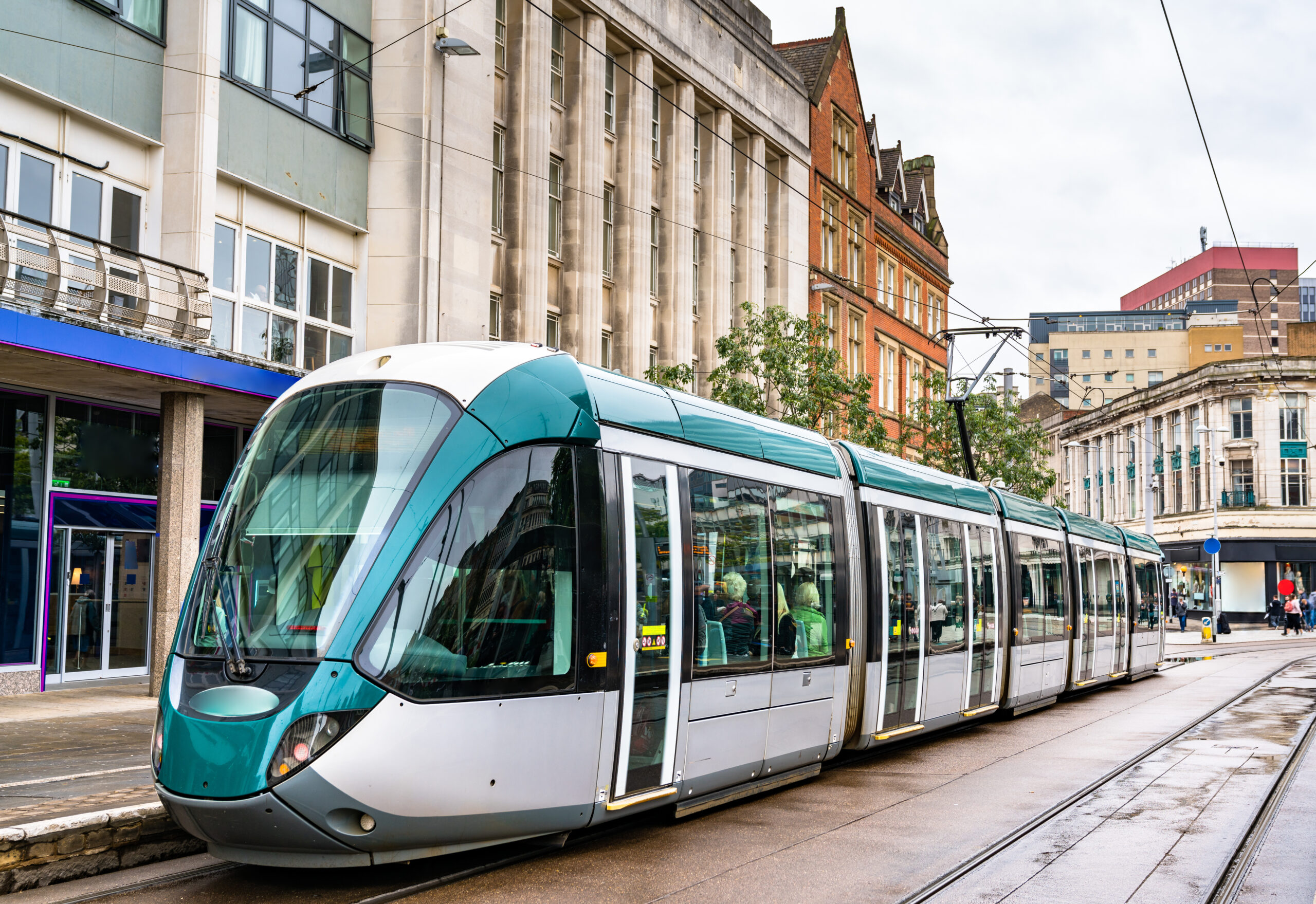Wednesday 20 September 2023
Co(l)laboratory 2024 PhD Project

Key Details
Project Title: Advancing Sustainable Transportation in Nottingham: Towards Inclusive and Safer Micromobility for All
Deadline:12 noon 15 December 2023
Host University: Nottingham Trent University
School / department: School of Social Sciences
Start date: 03 April 2024
Funding offer: Tuition fees covered in full (worth approx. £15k across full PhD programme). Monthly stipend based on £18,622 per annum, pro rata, tax free.
Working hours: Full-time (minimum 37.5 hrs per week), or part-time (minimum 20hrs per week).
Working style: Primarily in-person at host university. Flexible working supported. Working pattern to be agreed between successful candidate and lead supervisor.
Project Supervisors
- Lead Academic Supervisor: Dr Petya Ventsislavova Petrova, NTU
- Academic Co-Supervisor: Dr Elizabeth Sheppard, UoN
- Community Supervisor: Iain Turner, Nottingham City Council
About The Project
Whether residents choose to cycle, walk, or use e-scooters for their daily commutes or short journeys, the introduction of e-bikes, in addition to the ongoing e-scooter trial, aims to enhance mobility and accessibility within Nottingham. Nottingham is one of the most popular e-bike and e-scooter trial locations, particularly among young people, and Nottingham City Council are committed to supporting diverse forms of what is known as “micromobility” throughout the city to reduce traffic congestion and reliance on car travel.
However, there is a significant issue in that a considerable number of these modes of transport are not being ridden in accordance with existing legislation, leading to negative attitudes and reluctance among residents to embrace these micromobility options. While safety measures exist for both bicycles and e-scooters, there is a notable absence of formal training programs to educate users on safe riding practices. Despite the rising popularity of these modes of transportation, research concerning the causes of collisions and strategies to minimize these is limited.
To address these challenges, this project will identify the barriers individuals face when considering micromobility and explore motivations for using e-bikes and e-scooters and the factors which deter them from doing so. The research project will assess and compare the attitudes, skills, and transportation habits of diverse demographic groups within the community. Subsequently, the project, which is supported by a partnership with Nottingham City Council, looks to develop an evidence-based approach to educate both current users and non-users on the safe and effective use of micromobility.
This research will engage with local e-bike and e-scooter users and non-users, with a particular focus on three target groups: university students, local secondary school students, and residents. The project hopes to raise awareness about micromobility, enhance its appeal and practicality for users, and strengthen safety measures to promote its adoption as a sustainable and safe mode of transportation within Nottingham.
Project Aims
The overall aims of this project are:
- To identify the obstacles that local residents face when considering micromobility, exploring barriers to and motivations for using e-bikes and e-scooters
- To evaluate whether initiatives aimed at raising awareness and providing training on the safe usage of e-scooters and e-bikes can make micromobility more appealing to local residents
- To develop an evidence-based approach aimed at educating both current users and non-users on the safe and effective use of micromobility. This educational intervention will aim to raise awareness about micromobility, enhance its appeal and practicality for users, and bolster its safety measures.
Competencies
| Co(l)laboratory Core Competencies | ||
| Category | Competency | Assessed: Application (A), Interview (I) |
| Comprehension and evaluation | Strong understanding of the project and its subject matter. | A / I |
| Analytical, researcher mindset with keen attention to detail. | A / I | |
| Communicate complex concepts with clarity and precision. | A / I | |
| Able to identify connections, patterns, gaps, and irregularities in information/data. | I | |
| Able to interpret data/information confidently with logic and empathy to derive meaning. | I | |
| Social and emotional | Demonstrable experience of responding effectively changing contexts, information and demands. | A |
| Ability to persevere in the face of challenges/failures and to remain constructive in developing solutions. | A | |
| Demonstrable passion for learning with clear drive and curiosity to undertake this specific research project. | A / I | |
| Willingness to immerse oneself in the research subject matter and make a contribute to new knowledge through a PhD. | A / I | |
| Strong desire to make a positive community impact through the research. | A / I | |
| Willingness to think deeply about complex concepts and engage with academic ideas and theory. | A / I | |
| Preparedness and potential for success | Experience of working, collaborating and communicating effectively with different stakeholders. | A |
| High level of self-motivation and ability to work with minimal guidance. | A / I | |
| Strong organisational and time-management skills with the ability to balance and prioritise multiple tasks. | A / I | |
| Ability to identify potential challenges and complexities and thoughtfully consider possible solutions. | A / I | |
| Able to identify the technical, personal, or professional skills required for a task and take action to develop these. | A / I | |
| Community Context | Genuine desire to undertake community-engaged research over more traditional approaches to research. | A |
| Understand the impact of and need for the inclusion of diverse experiences and points of view in research. | A / I | |
| Appreciation/understanding of the importance of community insight and experience in the generation of new knowledge. | A / I | |
| Awareness/understanding of the broader societal context related to the subject matter of the project. | A / I | |
| Project Specific Competencies | |||
| Essential | Assessed: Application (A), Interview (I) | Desirable | Assessed: Application (A), Interview (I) |
| Experience or background in a relevant area (e.g., traffic and transport, psychology, engineering, law, social work, etc.) | A / I | Professional experience working in the transport field. | A / I |
| Strong IT proficiency with the ability to learn and use new software and digital tools. | A / I | Experience of behavioural research or similar social science research methods. | A / I |
| Appreciation for key concepts relevant to the research project such as social behaviour, behavioural research, transport and the built environment, etc. | A / I | Experience communicating specialist information to different audiences. | A / I |
| Appreciation/understanding of the ethics of working with or carrying out research with people and communities | A / I | ||
References for Further Reading
- Badeau, A., Carman, C., Newman, M., Steenblik, J., Carlson, M., & Madsen, T. (2019). Emergency department visits for electric scooter-related injuries after introduction of an urban rental program. The American journal of emergency medicine, 37(8), 1531-1533. DOI: 10.1016/j.ajem.2019.05.003
- Buehler, R., Broaddus, A., Sweeney, T., Zhang, W., White, E., & Mollenhauer, M. (2021). Changes in travel behavior, attitudes, and preferences among e-scooter riders and nonriders: first look at results from pre and post e-scooter system launch surveys at Virginia Tech. Transportation research record, 2675(9), 335-345. https://doi.org/10.1177/03611981211002213
- Department for Transport (2022). National evaluation of e-scooter trials. Findings report. (278971). Retrieved from: https://www.gov.uk/government/publications/national-evaluation-of-e-scooter-trials-report. Date Accessed: 28/06/2023.
- Fishman, E., Washington, S., & Haworth, N. (2014). Bike share’s impact on car use: Evidence from the United States, Great Britain, and Australia. Transportation Research Part D: Transport and Environment, 31, 13-20. https://doi.org/10.1016/j.trd.2014.05.013
- Harris, L., & Kearney, P., (2021). UK Parliament. Research Briefing. Smart Cities. Retrieved from: https://post.parliament.uk/research-briefings/post-pn-0656/#:~:text=Other%20UK%20Cities%20that%20have,Milton%20Keynes%2C%20London%20and%20Peterborough.&text=Technical%20innovation%20and%20decreasing%20compon ent,adoption%20of%20smart%20city%20technologies Date accessed: 29/06/2023.
- Haworth, N., Schramm, A., & Twisk, D. (2021). Comparing the risky behaviours of shared and private e-scooter and bicycle riders in downtown Brisbane, Australia. Accident Analysis & Prevention, 152, 105981.
- Liyanage, S., Dia, H., Abduljabbar, R., & Bagloee, S. A. (2019). Flexible mobility on-demand: An environmental scan. Sustainability, 11(5), 1262. https://doi.org/10.3390/su11051262
- McKenzie, G. (2020). Urban mobility in the sharing economy: A spatiotemporal comparison of shared mobility services. Computers, Environment and Urban Systems, 79, 101418. https://doi.org/10.1016/j.compenvurbsys.2019.101418
- O’Cathain, A., Croot, L., Sworn, K. et al. Taxonomy of approaches to developing interventions to improve health: a systematic methods overview. Pilot Feasibility Stud 5, 41 (2019). https://doi.org/10.1186/s40814-019-0425-6
- Pazzini M., Cameli L., Lantieri C., Vignali V., Dondi G., & Jonsson T. (2022). New Micromobility Means of Transport: An Analysis of E-Scooter Users’ Behaviour in Trondheim. Int J Environ Res Public Health, 19(12),73-74.
- Petzoldt, T., Ringhand, M., Anke, J., & Schekatz, N. (2021). Do German (Non)Users of E-Scooters Know the Rules (and Do They Agree with Them)? Lecture Notes in Computer Science (Including Subseries Lecture Notes in Artificial Intelligence and Lecture Notes in Bioinformatics), 12791 LNCS, 425–435.
- Ricci, G. L., & Bogenberger, K. (2021). Road Transport: E-Scooters. In International Encyclopedia of Transportation, 391–398. https://doi.org/10.1016/b978-0-08-102671-7.10453-1
- Sherriff, G, Blazejewski, L, Hayes, SJ, Larrington-Spencer, HM & Lawler, C (2021). E-scooters in Salford : interim report. University of Salford. Accessed on 19/02/2022: http://usir.salford.ac.uk/id/eprint/60393/
- Sucha, M., Drimlova, E., Recka, K., Haworth, N., Karlsen, K., Fyhri, A., Wallgren, P., Silverans, P., & Slootmans, F. (2023). E-scooter riders and pedestrians: Attitudes and interactions in five countries. Heliyon, 9, e15449. https://doi.org/10.1016/j.heliyon.2023.e15449
- Useche, A., O’Hern, S., Gonzalez-Marin, A., Gene-Morales, J., Alonso, F., Stephens, A. (2022). Unsafety on two wheels, or social prejudice? Proxying behavioral reports on bicycle and e-scooter riding safety – A mixed-methods study. Transportation Research Part F: Traffic Psychology and Behaviour, 89, 168-182.
- Ventsislavova, P., Baguley, T., Antonio, J., & Byrne, D. (in press)., E-scooters: Still the new kid on the transport block. Assessing e-scooter legislation knowledge and illegal riding behaviour. Accident Analysis and Prevention, AAAP-D-23-01122
- Vernon, N., Maddu, K., Tarek, N.H., Chahine, A., Leonard, C.E., & Johnson, J.O. (2020). Emergency department visits resulting from electric scooter use in a major southeast metropolitan area. Emergency Radiology, 27, 469–475. https://doi.org/10.1007/s10140-020-01783-4
- White, E., Guo, F., Han, S., Mollenhauer, M., Broaddus, A., Sweeney, T., Robinson, S., Novotny, A., & Buehler, R. (2023). What factors contribute to e-scooter crashes: A first look using a naturalistic riding approach. Journal of Safety Research, 85, 182-191. https://doi.org/10.1016/j.jsr.2023.02.002
